Review of "SIMPLEX": That wasn't so difficult, was it?
.jpg)
How do you turn a talk about quantum physics and gut bacteria into an evening with an aha moment? At our "SIMPLEX" talk evening at Berlin Science Week, we did just that - difficult things, but very simple and easy to understand.
It was full. So full that we were lost for words for a moment. Our talk-with-exhibition "SIMPLEX" on Monday evening (November 3, 2025) as part of Berlin Science Week 2025 was filled to the last seat. The topic: "How we can / want / should make difficult things easy?". The energy in the room: fantastic.
It was about intestinal bacteria, figure skating, Aristotle, electric circuits and quantum physics. Above all, however, it was about how we (from the regulars' table to the news to the lecture) can talk about science, talk to each other and make something of it together. None of this would be possible without the people who made this evening what it was.
A huge thank you to our wonderful guests, the biotechnologist and science communicator Lisa Budzinski and the editor-in-chief of Science Notes magazine Thomas Susanka, for their insights, impulses and a few funny stories. Thanks to Felina Czycykowski for the brilliant moderation, to the artist Felix Bork for the humorous setting and of course to all of you for being there and being curious.
For all those who (unfortunately) had to stay outside or were unable to attend, we have summarized the six central impulses of the evening here. And at the end, there are also a few very personal things that we will take away with us.
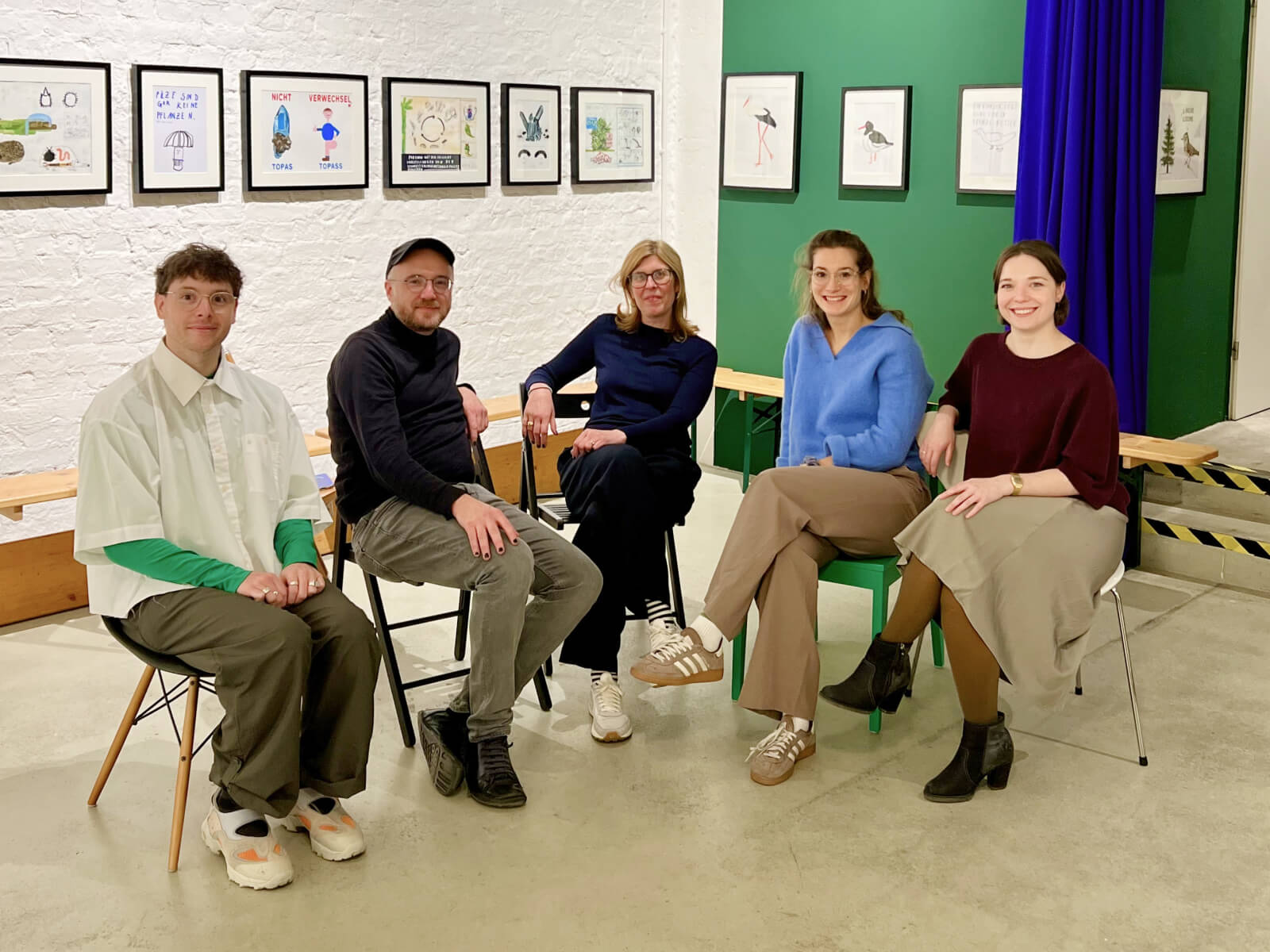
Our mini toolbox for the so-called back of the head, filled with a few impulses to help you tackle the next difficult topic more easily.
1 The target group compass: Who are you actually speaking for?
"The first step is not actually to think about how complicated it is, but to whom do I want to explain something and what might interest this person?" - Thomas Susanka
The key to understanding is often not the topic itself. The most important question is: Who is the other person and what interests them? A simple exercise makes this clear: grab any specialist text. Write different possible target groups on small pieces of paper - "a 10-year-old child", "your grandma", "a manager who only has 30 seconds". Then pick a piece of paper and try to explain everything to exactly this person. You will realize: We all have the ability to translate. This exercise helps us to change our perspective and automatically focus on the essentials.
2. the anatomy of credibility: competence, integrity and goodwill.
"The last one is perhaps the most important in this case, because I realize, oh yes, someone is trying to explain something to me, they're making an effort, they're trying hard." - Thomas Susanka
The more complex a topic, the more we rely on credibility. We can't check every climate study ourselves or analyze every vaccine paper. We have to trust. But who do we actually believe - and why? The answer is timeless and goes back to Aristotle: according to him, credibility is based on three pillars. We trust people who are competent (expertise), have an ethical attitude (integrity) and show us goodwill. The last point in particular is crucial. We sense when someone is making a genuine effort to be understandable and talk to us.
3. "It's like... - a good comparison": Why are gut bacteria like a soccer team?
We often get stuck in under-complex representations of complex topics: Is this bacterium good or bad? Should I do it or not? By finding an image that everyone knows, we can break down this one-or-zero thinking. And even explain complex relationships, networks, dependencies, etc. An example from Lisa Budzinski: Instead of talking about lactobacilli, you can describe the microbiome as a sports team. There are different players with different tasks that only work as a team and need to be trained regularly. This simple trick opens doors, lowers the inhibition threshold and immediately invites you to think along.
"If we imagine the intestinal bacteria in this way, we realize relatively quickly that there can't be one bacterium that can do everything. We realize that they have to work together and we realize that we have to train them." - Lisa Budzinski
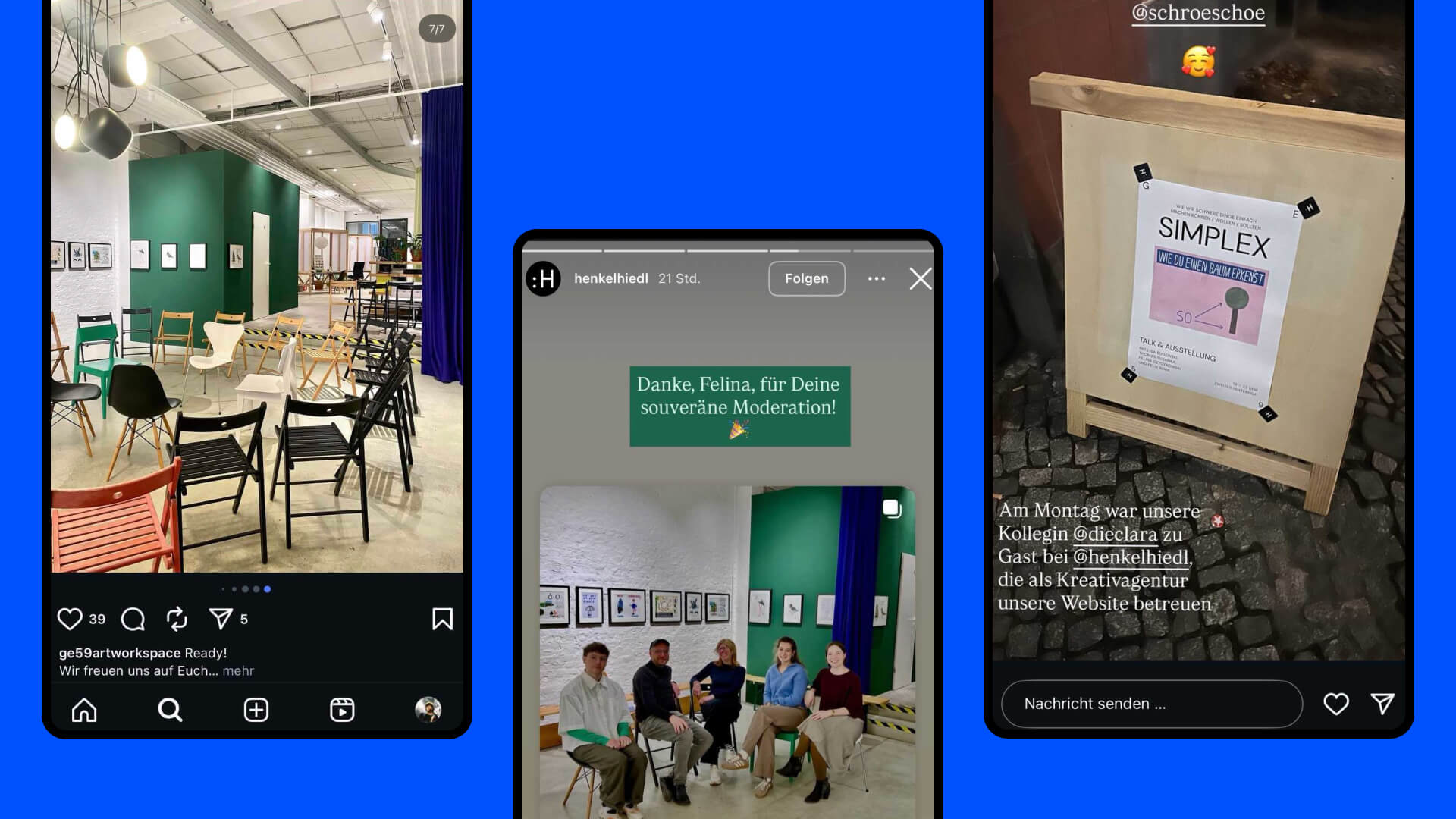
4. same content, different setting: from the lecture hall to the club.
"We thought one factor could be if we changed the setting. And we go to a small club ... And the great thing about the evening was that it worked." - Thomas Susanka
Sometimes it's worth simply changing the door to create a new approach to a topic. When science is moved from the lecture hall to a club, as at the Science Notes events - with live music and a good atmosphere - a completely new accessibility is created. It's about creating an emotional and cultural framework before the intellectual debate even begins. The message: if the setting feels good, we are also prepared to engage with difficult content.
5. Curiosity is contagious: questions instead of answers
(science) communication not only provides answers, it also raises questions. Because sometimes it's not about explaining everything in full, but about making people "curious" in the first place. The aim is to create a spark that encourages people to look into a topic further. The whole evening at "SIMPLEX" was the best proof of this: it came about because there was curiosity, it worked because the audience was curious, and it has a lasting effect because it aroused new curiosity.
"I am encouraged by this evening because you all came and because there is interest in it, because it sparked curiosity, because we discussed it." - Lisa Budzinski
6. Multiple instead of simple: "Just do it" is not always the solution.
What is actually the opposite of "simple"? Not just "difficult", but above all "multiple". When we oversimplify things, we rob ourselves of all the fascination that lies in the details. We iron out the exciting corners and edges until all that remains is an inaccessible surface. Sometimes the beauty lies not in the simple answer, but in the shared amazement at the complexity. It's about appreciating diversity, even if - or precisely because - we don't understand it down to the last detail.
"I actually don't always think it's good. If I make something simple, then I'm also taking away some of the diversity." - Thomas Susanka

On our own behalf: What we take away from the event
In addition to the many substantive learnings from the evening, there are of course some very tangible things that we are taking away with us. And because this can also help others, we think it's a good idea to write this simply and transparently on the Internet.
Frontal <> Surround:
For us, the evening was an experiment in seating arrangements. We wanted to transform the classic frontal sound system into a "surround sound" of exchange. So: no podium with a decent distance, but the talk in the middle of the room, the audience around the outside, in a circle. That worked. It became more personal, closer and more active because everyone could see each other's faces. The idea of a real "fishbowl" failed in reality - it was simply too crowded. But it didn't matter, because the main goal was achieved - interaction, requests to speak and a conversation among many.
Sprechen <> Zuhören:
A setting is only as good as the people who fill it. The evening worked because everyone was there to start a conversation. Our guests and the presenter weren't just there to broadcast, they were curious themselves. The audience wasn't just there to listen, but was full of clever ideas. It is precisely this dynamic, in which everyone sends and receives, that makes for a good exchange. I would also like to take this opportunity to thank IT Audio for the perfect sound that made it all possible.
Kunst <> Wissenschaft:
Heavy topics need a light framework. The evening showed once again how well this interplay works. Whether Felix Bork's illustrations, Lisa's science slams or Thomas' events in clubs - the combination of art, culture and science creates exactly the kind of approachable access that we have been talking about all evening.
PS: That was "SIMPLEX - How we can / want / should make difficult things easy?" - And here also quite figuratively:
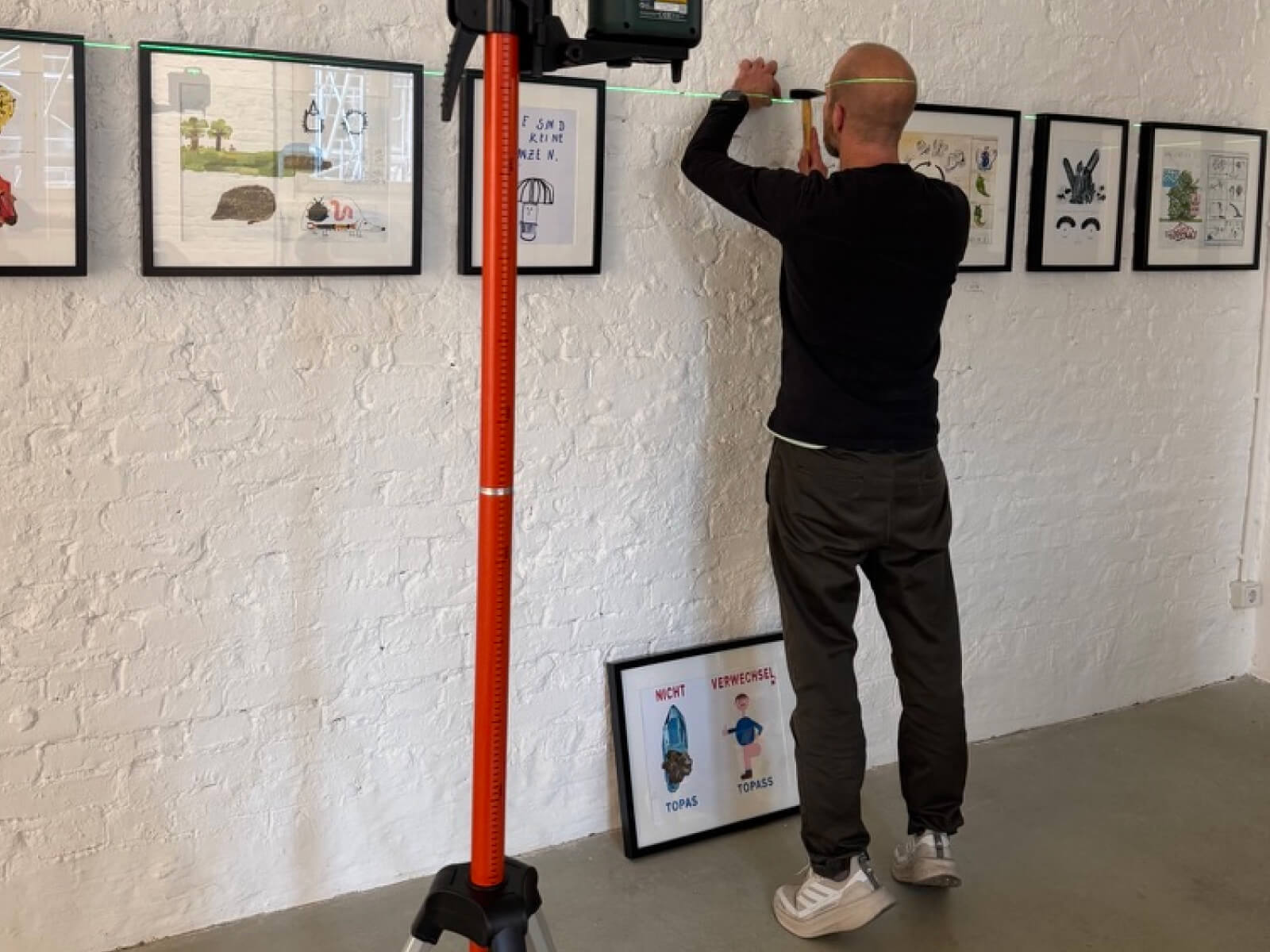
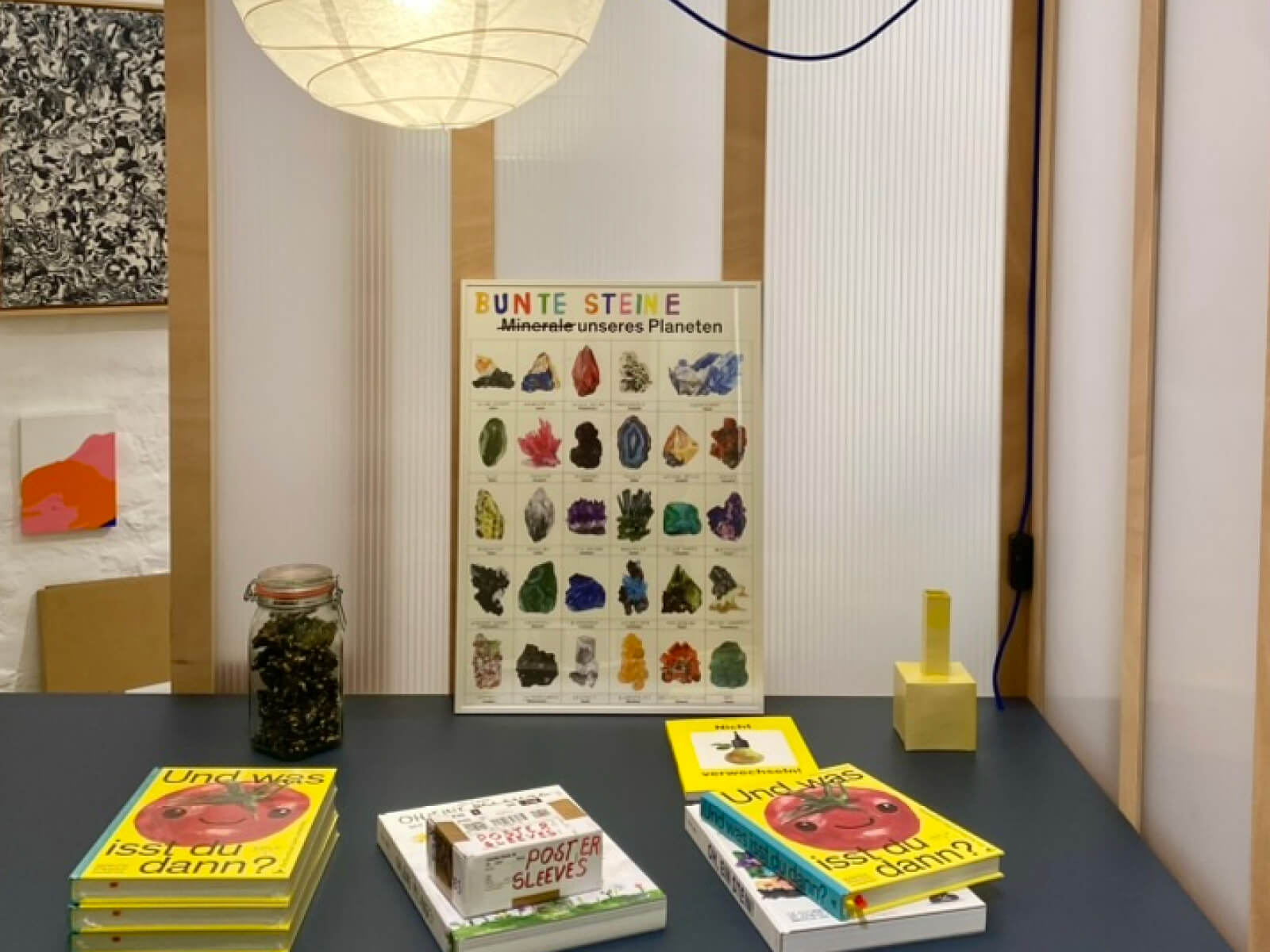
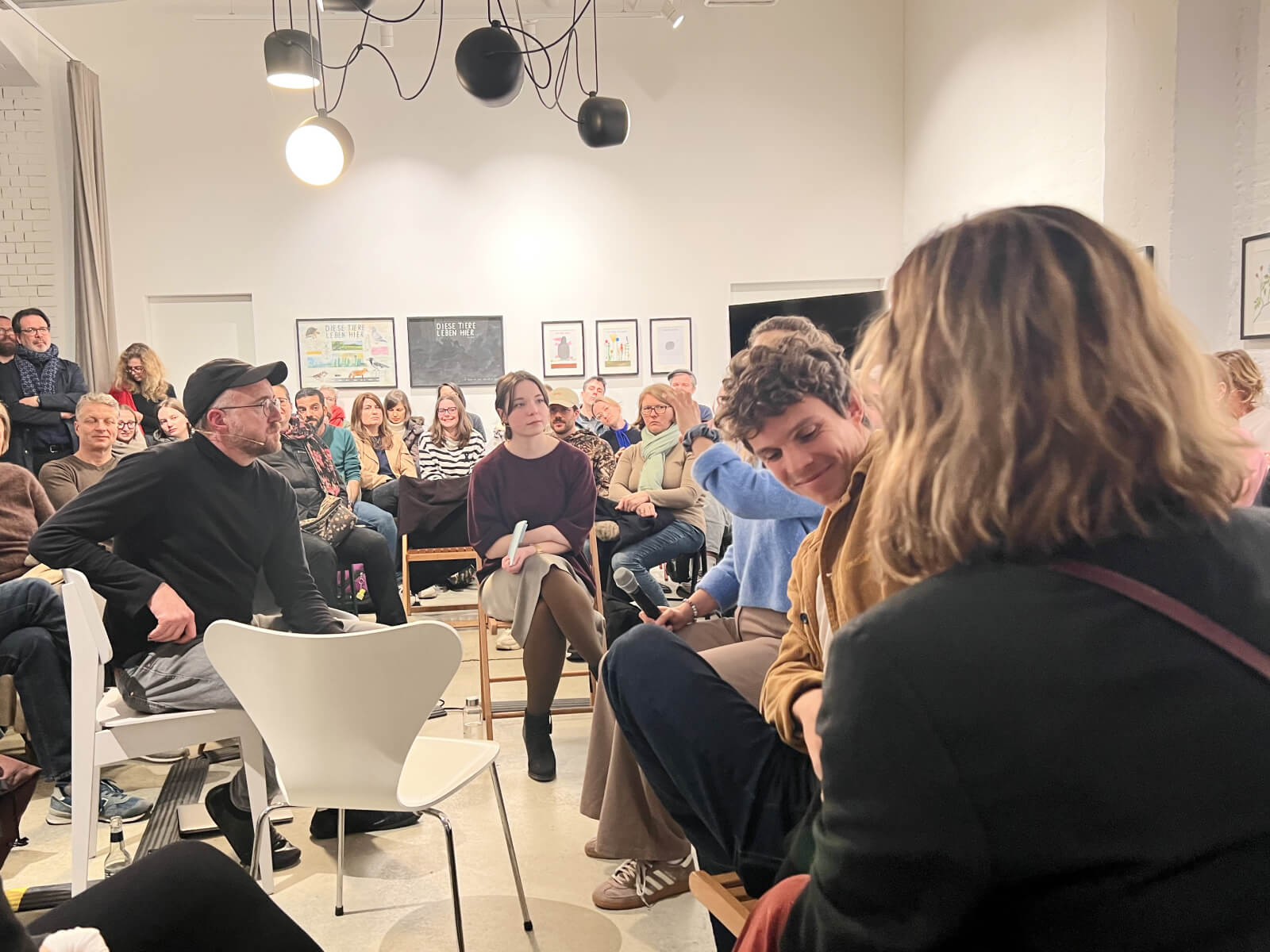


If you want to be part of upcoming events, please sign up for our newsletter or follow us on LinkedIn and Instagram. So, see you next time!
PS: And because art and culture also include music (of course), we (i.e. Uwe Viehmann) have put together a special playlist for the evening. Under the motto "Simplex (Pop)", we've put together pop songs that deal with the basics of life or even just have something "simple" in the title or chorus. Some of them are "on the side", many are "really great", some are just "for fun" - and a rotten egg is also said to have crept in.

